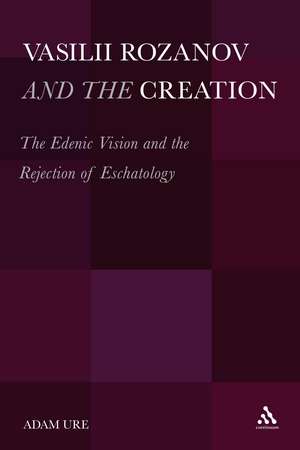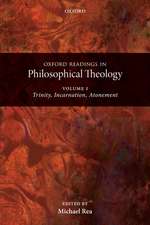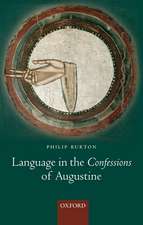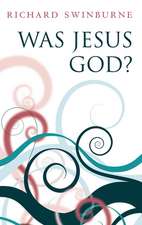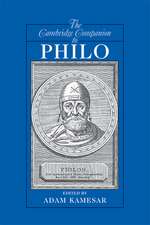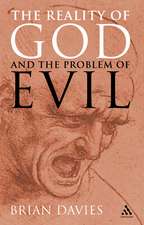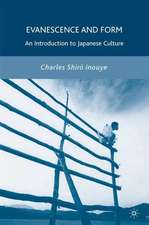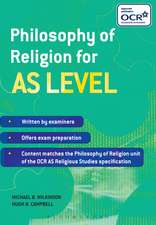Vasilii Rozanov and the Creation: The Edenic Vision and the Rejection of Eschatology
Autor Dr. Adam Ureen Limba Engleză Hardback – 28 sep 2011
| Toate formatele și edițiile | Preț | Express |
|---|---|---|
| Paperback (1) | 258.42 lei 6-8 săpt. | |
| Bloomsbury Publishing – 22 mai 2013 | 258.42 lei 6-8 săpt. | |
| Hardback (1) | 833.54 lei 6-8 săpt. | |
| Bloomsbury Publishing – 28 sep 2011 | 833.54 lei 6-8 săpt. |
Preț: 833.54 lei
Preț vechi: 1198.48 lei
-30% Nou
Puncte Express: 1250
Preț estimativ în valută:
159.50€ • 173.80$ • 134.40£
159.50€ • 173.80$ • 134.40£
Carte tipărită la comandă
Livrare economică 23 aprilie-07 mai
Preluare comenzi: 021 569.72.76
Specificații
ISBN-13: 9781441154941
ISBN-10: 1441154949
Pagini: 288
Ilustrații: black & white illustrations
Dimensiuni: 152 x 229 x 21 mm
Greutate: 0.59 kg
Ediția:New.
Editura: Bloomsbury Publishing
Colecția Continuum
Locul publicării:New York, United States
ISBN-10: 1441154949
Pagini: 288
Ilustrații: black & white illustrations
Dimensiuni: 152 x 229 x 21 mm
Greutate: 0.59 kg
Ediția:New.
Editura: Bloomsbury Publishing
Colecția Continuum
Locul publicării:New York, United States
Caracteristici
Provides a detailed examination of Russian eschatology, its religious foundations and cultural implications
Notă biografică
Adam Ure completed his PhD at the School of Slavonic and East European Studies, University College London, in 2009, on the religious philosophy of Vasilii Rozanov.
Cuprins
Introduction Chapter 1 Rozanov's God: Creation and EschatologyChapter 2 Rozanov and ChristChapter 3 Rozanov and Ancient EgyptChapter 4 Rozanov and the Jews: Creation and the Everyday Chapter 5 The Aesthetics of CreationChapter 6 Putting Creation into Practice: Rozanov's Opavshelistika Conclusion Paradise Lost: Rozanov and the Philosophy of Life
Recenzii
One of early 20th-Century Russia's most important and original thinkers, Vasilii Rozanov has undergone a revival in Russia since the fall of communism and his impact continues to resonate amongst Russian intellectuals of all persuasions. Adam Ure's meticulously researched new book is the first substantive work in English on Rozanov. Its hugely impressive merit is that, unlike previous scholarship which has tended to treat the writer in purely literary mode, or in his philosophical context, it offers a holistic interpretation capable of unifying Rozanov's philosophical, political, theological and aesthetic activities within a single system: that of his theory of Creation. It is this that allows Ure convincingly to account for Rozanov's influence on Russian intellectual discourse more broadly, and on literary modernism in Russia and elsewhere. Rejecting conventional assumptions regarding Rozanov's associations with apocalypticism, Ure lays emphasis on this unique figure's abiding commitment to the vitality and dynamism of the human spirit. This enables him to restore Rozanov to his rightful place of prominence in the rich canon of Russian heretical thought. Ure's achievement will be of compelling interest to scholars and students of European literature, religious philosophy and intellectual history alike.
Adam Ure offers a much-needed and exceptionally well-grounded insight into the dogmatic thrust of this fragmentary, apparently contradictory and much-misrepresented author's thought. As his title suggests, Ure shows us a man passionately opposed to the modern world's trend towards 'virtual reality' and dedicated, through the sustained creative effort of his writing, to propagating the 'true coinage' of the personal and material creation at the expense of what he sees as loveless and abstract Christian-Platonic idealism which looks forward only to the end of this life and of the tragedy of the historical process.
Vasilii Rozanov and the Creation gives us the most thorough English-language study to date of the penetrating, sometimes quirky, and always provocative thought of one of Russia's most original thinkers and finest writers. Rozanov's effort to rethink Russian Orthodoxy even today has considerable value, particularly his emphasis on the Creation rather than the Apocalypse. Adam Ure has placed Rozanov's major themes of ancient Egyptian culture, Judaism, the New Testament, and the Orthodox Church in a carefully and informatively constructed theological context. His discussion of Rozanov's views on sex, family, and the body with their sustained focus on creation highlights a unique strand in Russian thought. Rozanov's worries about Russian identity resonate strongly in contemporary Russia. Ure's book makes a timely contribution to that debate.
[T]he most comprehensive [study] in English to date . There is no doubt that this book makes a significant addition to existing scholarship. Apart from its comprehensiveness and its central thesis - which is not one that I have encountered in this form before - its outstanding merit is the degree to which it situates Rozanov within his contemporary culture and also draws him into dialogue with an historically and geographically extensive range of artists and thinkers, including those post-dating Rozanov himself. There is unlikely to be a reader who doesn't take anything new from this treasure house.
Adam Ure offers a much-needed and exceptionally well-grounded insight into the dogmatic thrust of this fragmentary, apparently contradictory and much-misrepresented author's thought. As his title suggests, Ure shows us a man passionately opposed to the modern world's trend towards 'virtual reality' and dedicated, through the sustained creative effort of his writing, to propagating the 'true coinage' of the personal and material creation at the expense of what he sees as loveless and abstract Christian-Platonic idealism which looks forward only to the end of this life and of the tragedy of the historical process.
Vasilii Rozanov and the Creation gives us the most thorough English-language study to date of the penetrating, sometimes quirky, and always provocative thought of one of Russia's most original thinkers and finest writers. Rozanov's effort to rethink Russian Orthodoxy even today has considerable value, particularly his emphasis on the Creation rather than the Apocalypse. Adam Ure has placed Rozanov's major themes of ancient Egyptian culture, Judaism, the New Testament, and the Orthodox Church in a carefully and informatively constructed theological context. His discussion of Rozanov's views on sex, family, and the body with their sustained focus on creation highlights a unique strand in Russian thought. Rozanov's worries about Russian identity resonate strongly in contemporary Russia. Ure's book makes a timely contribution to that debate.
[T]he most comprehensive [study] in English to date . There is no doubt that this book makes a significant addition to existing scholarship. Apart from its comprehensiveness and its central thesis - which is not one that I have encountered in this form before - its outstanding merit is the degree to which it situates Rozanov within his contemporary culture and also draws him into dialogue with an historically and geographically extensive range of artists and thinkers, including those post-dating Rozanov himself. There is unlikely to be a reader who doesn't take anything new from this treasure house.
